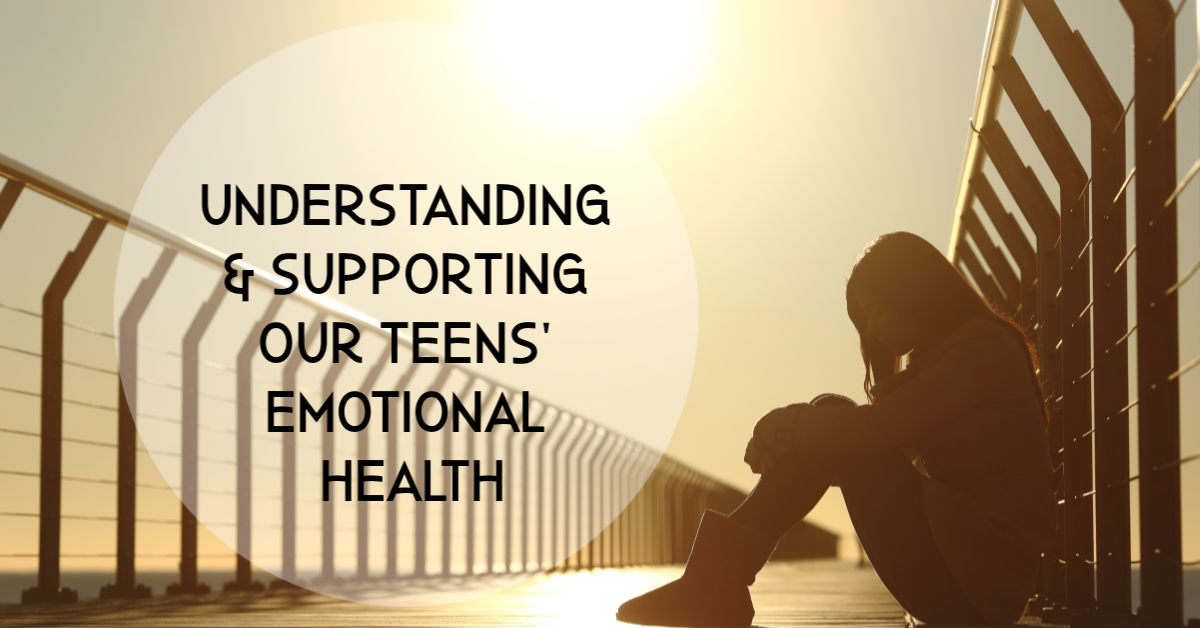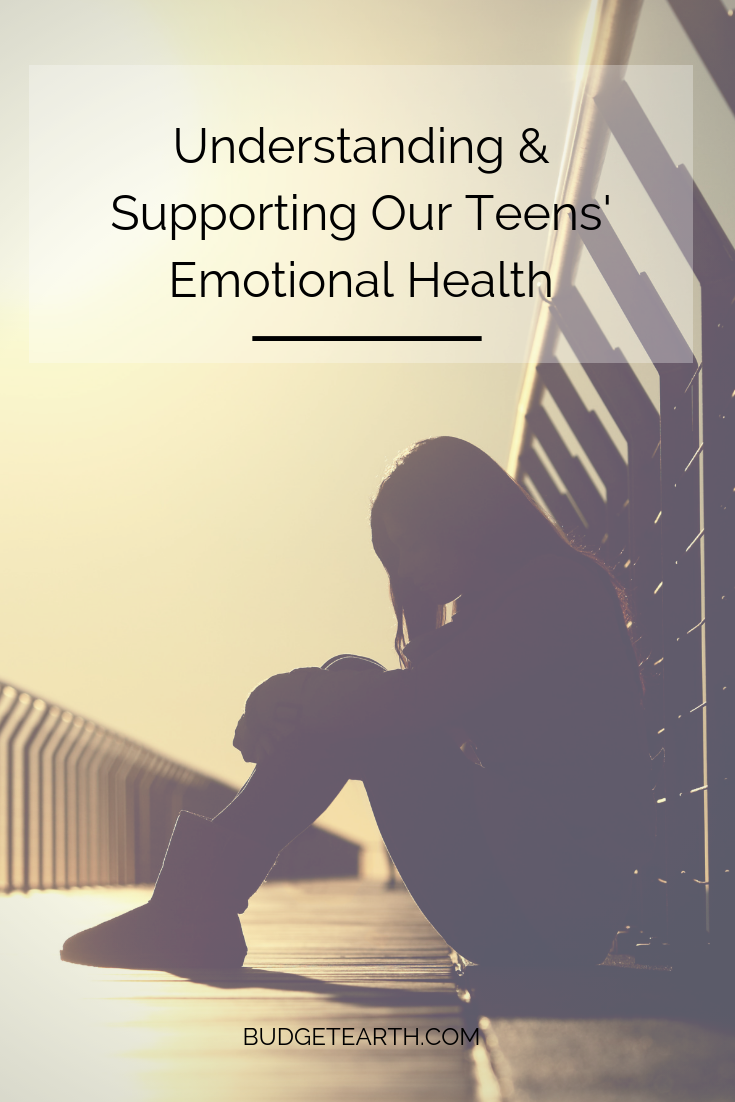

Although many adults understand what depression is and how it can affect their own lives, it can be difficult to understand that teens can face depression, too. In fact, you’d be surprised to learn that depression among teens is much more common than you think. After all, teens are undergoing impactful experiences that build the foundation of the rest of their lives. These statistics on teen depression can help put things into better perspective:
- Females are twice as likely to develop depression than men
- The number of teens committing suicide is increasing every year. According to Suicide.org, a teen takes their own life every 100 minutes, and is the third leading cause of death in those aged 15 to 24.
- Three million teens have had at least one major depressive episode in the past year
- One in five teens experience depression before they reach adulthood
Many parents and families don’t believe that depression could hit their young loved ones so hard, but these statistics paint a gruesome picture of reality. To truly ensure that your teens are safe, you should have the proper knowledge and means for supporting their emotional health.
Understanding Causes & Signs of Teen Depression
There are many reasons that your teen may be depressed. Physical diseases, hormonal imbalances, chronic pain, environmental factors (like bullying or a toxic home environment), and drug abuse are all common causes. It’s equally as important to understand the causes as it is to be able to recognize some of the major symptoms. According to the World of Psychology, here are some of the signs you should look out for:
- Sluggish behavior, not very active
- Trouble getting to sleep
- Writing or talking about death or suicide
- Less desire to participate in activities they normally enjoy
- Giving up on themselves and their personal appearance
Drug and alcohol abuse are also signs of depression, and there are additional signs to look out for in that area. Teens will often turn to drugs and alcohol as a form of escapism, especially when they feel overwhelmed by what’s happening in their own life, or are are socially influenced by others partaking in illegal activities.
A report published by the Substance Abuse and Mental Health Services Administration (SAMHSA) found that 74% of adults participating in a substance abuse treatment program began using alcohol or drugs before the age of 17. Many other studies have found that there is a clear link between depression and substance abuse.
Seeking Help
Studies have shown that only 30% of depressed teens are seeking help. Teen depression treatment is critical if you want to curb the statistics that plague young adults. One of the first things you’ll want to do is start educating yourself. Articles like this are a good place to start, but you’ll likely want to dive a little deeper.
Seeking professional help is one of the most important steps you can take. Talk to your teen and seek professional help on their behalf. Let your teen know that you’re on their side, and understand what they’re going through.
Professional help provides you with a formal diagnosis, as well as potential treatments. Depending on your teen’s specific needs, a variety of treatments might be provided. For example, severe cases of major depressive disorder might require treatment, while more mild cases of depression could benefit from regular therapy sessions.
Find Supporting Materials
In the process of seeking treatment for your teen, it’s easy to get lost in helping someone else. This can be a major source of stress (and even depression) for you, too. Seek therapy and guidance in friends and family. You can even find help in books written by psychologists and/or people who have been in your shoes before. Blogs, psychological papers, and magazines all shed light on teen depression, too.
“Most experts would agree with me that there is more stress today than in previous generations,” wrote Therese J. Borchard, author of Beyond Blue. “I think modern lifestyles—lack of community and family support, less exercise, no casual and unstructured technology-free play, less sunshine and more computer—factors into the equation.”
By taking care of yourself, you can be a much more productive, effective, and supportive parent. Learning about a child’s depression is never easy: try not to allow yourself to be overwhelmed by the situation. With your own support system, you can take control of your circumstances.
About Dr. Jeff Nalin, Psy.D.

Dr. Jeff Nalin, Psy.D. is an award-winning licensed Clinical Psychologist and a Certified Chemical Intervention Specialist. He is the Founder and Chief Clinical Officer at Paradigm Malibu Treatment Center, with locations in Los Angeles and San Francisco.


It can really be a kick in the teeth for the parents. When you have a well adjusted happy child that all of a sudden is depressed to the point you are afraid for them it is devastating! The worst thing is when said child refuses to work with anyone. I agree that our kids have more stress than previous generations and it’s a heck of a time to grow up.
young people have much worst emotional problems these days. it wasnt like that when i was growing up.
Lots of young adults too. I hear brain development goes to around 25+ year mark. During this time lots of changes.. and finding self identity etc
Dealing with teen issues and finding the help they need can be daunting. Having some helpful ideas to get started in the process can certainly be helpful.
I was a teen in need of psych help and it was hard on my parents both financially and emotionally. My parents had to have me “CHINSed” in order to get me the help I needed. It should never be so hard to get teens the services they need to thrive.
I am really thankful to you for sharing this article This article is really helpful for teenagers!
Having a child with depression can be very hard on the parents. I don’t think this was as common when I was growing up…or maybe it was just not out in the open. Lots of turmoil in the mind of an adolescent
This article hits home! Our granddaughter tried to kill herself! The whole family was devastated!! She was depressed before about her father’s murder. Her mom and the kids started to go to church and seek out counseling. We thought everything was better and then I noticed another change in her. It was right after she got her period. She was so emotional and she slept more! All she did was want to sleep. Well when she tried again and almost succeeded, she was locked in a hospital mental ward, but in solitary confinement for five months! She had one on one with the doctor and the doctor had to regulate her new medications. It took a while, but she eventually joined group sessions, etc. plus she started to join in and talk about what was bothering her. We also found out that she was cutting herself. I could write a book, but I’ll spare everyone that heartache. Please watch your babies and follow your instincts and pray!
Taking care of teens emotional healthy is most important for parents. Any kind of help would always be appreciated.
This is such an important article!
Although we’ve come far in understanding and learning about being helpful to those who suffer from mental illnesses of all kinds and to help their loved ones learn to be helpful and supportive while also supporting them too, we still have a LONGGGG way to go!
I remember getting depressed even as a young child and the 1st time I tried to kill myself I was only 10 yrs old and didn’t tell anyone, warn anyone, nothing. I remember being mad and crying that it didn’t work when I woke up in my cousins’ car and I remember begging him not to tell my parents bc I would get in trouble so he didn’t.
It is VERY important for people who suffer from depression and for people who love those people to know that having depression SOMETIMES at least is a chemical imbalance and when/if it is they can’t cheer them up with a comedy or some exercise or a walk in the sunshine, and they didn’t fail them when they try to cheer them and nothing works.
They need to know that even the most intelligent, logical, reasonable, insightful people get VERY twisted but VERY real feeling thoughts that is difficult if not sometimes impossible to talk them out of, as if they temporarily lost all logic, it can feel like the most loving people don’t REALLY love you, they are only trying to be nice to not hurt your feelings and
I’m sick of people judging those who have tried to commit suicide, by saying they are cowards and selfish and don’t care at all about their kids or their families or their friends, what those people don’t understand is that during a severe suicidal depressed episode, they tend to think things along the lines of, I know everyone will be sad at first but really I am doing them a favor, I love them so much and care about them so much that I KNOW they will be better off without me even if they dont realize it just yet. While that is NOT TRUE, that is how a suicidal person is actually feeling and thinking. Another loved one of mine, a teen at the time, told me, I don’t want to die, but I HAVE to, because I tried EVERYTHING possible to get out of being bullied at school everyday but nothing works and I can’t live like this one more day, so even though I don’t want to die, I feel like it’s better than living like this and is the only way out.. I praised that young man for sharing that with me because I was able to get him help and get him out of his school and he no longer felt he had to die.
Make sure depressed loved ones KNOW they won’t get in trouble or be judged or punished for their feelings and thoughts even if they are difficult to hear.
DO NOT FEEL guilty if you need to admit a teen or adult or even a child into a psychiatric inpatient treatment, they are NOT places of torture and cruelty like years ago, they are supportive, helpful and can even help give them coping skills and/or help them get balanced if they need medication.
ALSO PLEASE know that suffering from depression or any mental illness IS NOT anything to be ashamed of just like being born with asthma or excema is nothing to be ashamed of. It is NOT a weakness nor it is a flaw! If anything such people are STRONGER than the average person because they go through life working against the current to get to the same goals and places as people flowing along with the current.
Also, people who suffer from some mental illnesses like bipolar tend to be among the most innovative, inventive, creative, artistic, out of the box people and also many people who suffer from any of these disorders often have exceptional compassion and empathy for others because of their own suffering.
Finally if you are someone who loves someone with a mental illness or regular depression, whether from a chemical imbalance or temporary situational depression.. know that is OK to not have all the answers and to not always know what to say or how to make them feel better, just let them know you wish you had all the answers but even though you don’t you want them to know you DEEPLY care and are always there to listen and not judge and be a shoulder to cry on and that they are never a bother.
Great to see this post. It is important to try to help and/or support someone who has depression & anxiety. Not to the point that they use it as an excuse for things; just being able to talk to someone or have someone check in on you can make a difference…young or old.
The suicide stats really break my heart and terrify me. The teen years have always been the most wonderful and the most difficult times in life, I try to keep communication open with my teen son but though he is open about a lot of things he is not very open when he is having a rough time in school or with friends. I just try to be aware of any mood swings that don’t seem to be normal teen turmoil.
Yes teens do have alot more emotional issues. Bullying is a huge part. My daughter went through it and it almost ruined her. I was living with so much fear that I was not doing enough even though I was doing everything possible even listening to her as she sometimes would want to talk.
I have a teen daughter and wow there is a difference between her and my teen son, and I have to reassure her and always help her understand she is beautiful and doing just fine in life. After realizing that it is not passing or getting better, I suggested for her to see and talk to someone other than me and she accepted and she now speaks with a therapist weekly and she is doing much better. I think it was the best thing for her, she now is able to talk to me better and I see a change in depression. This is a great post!!!